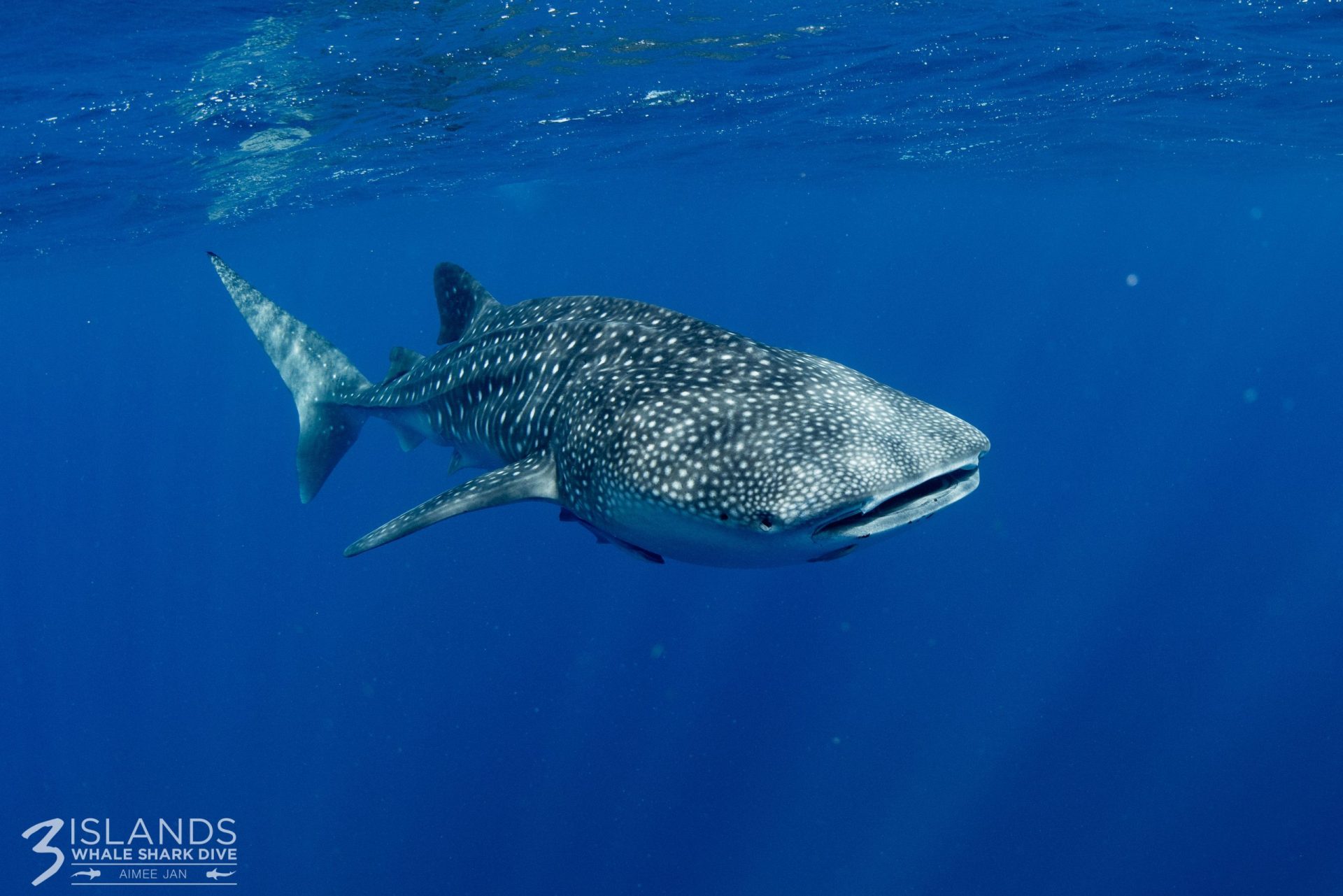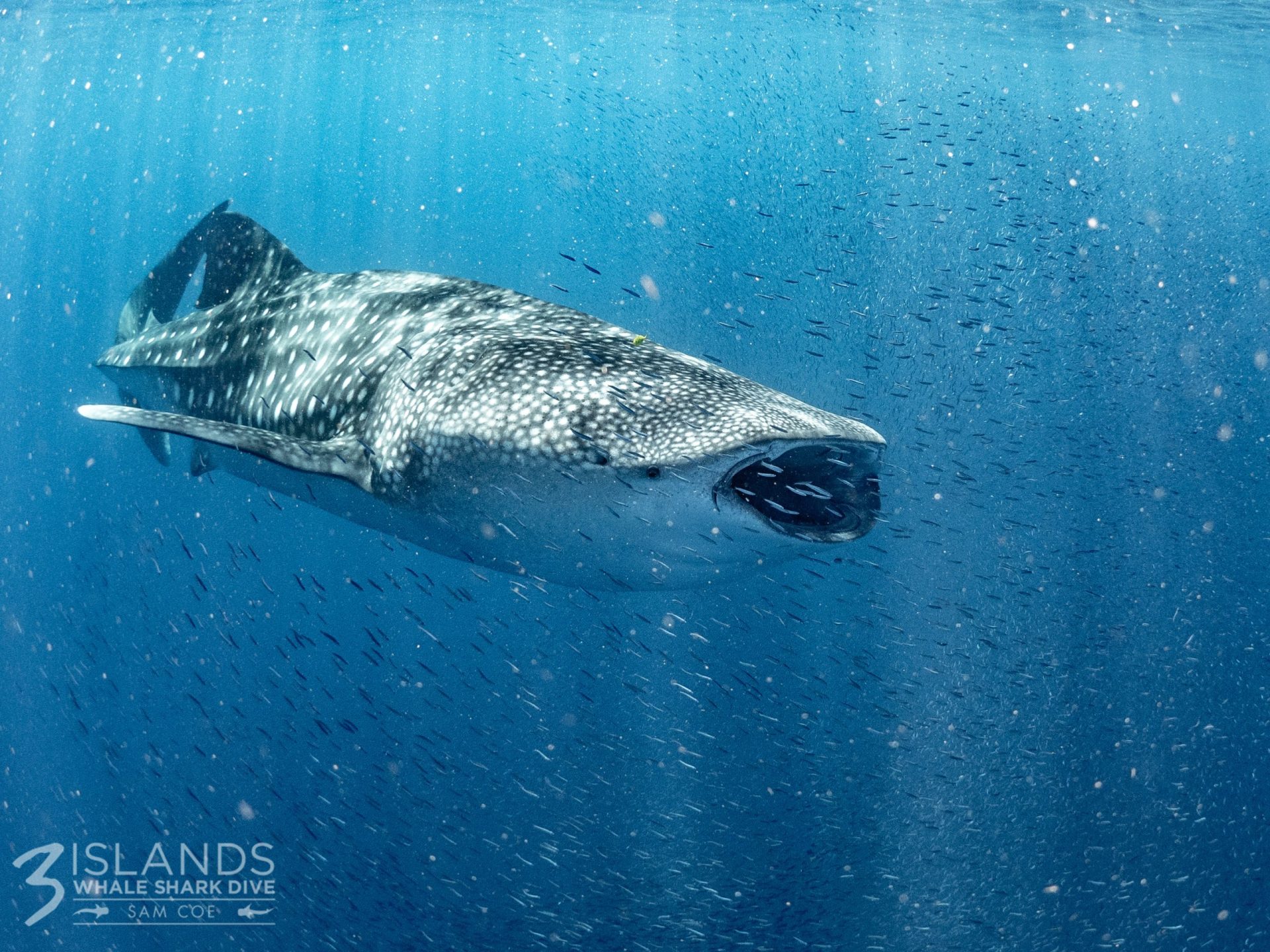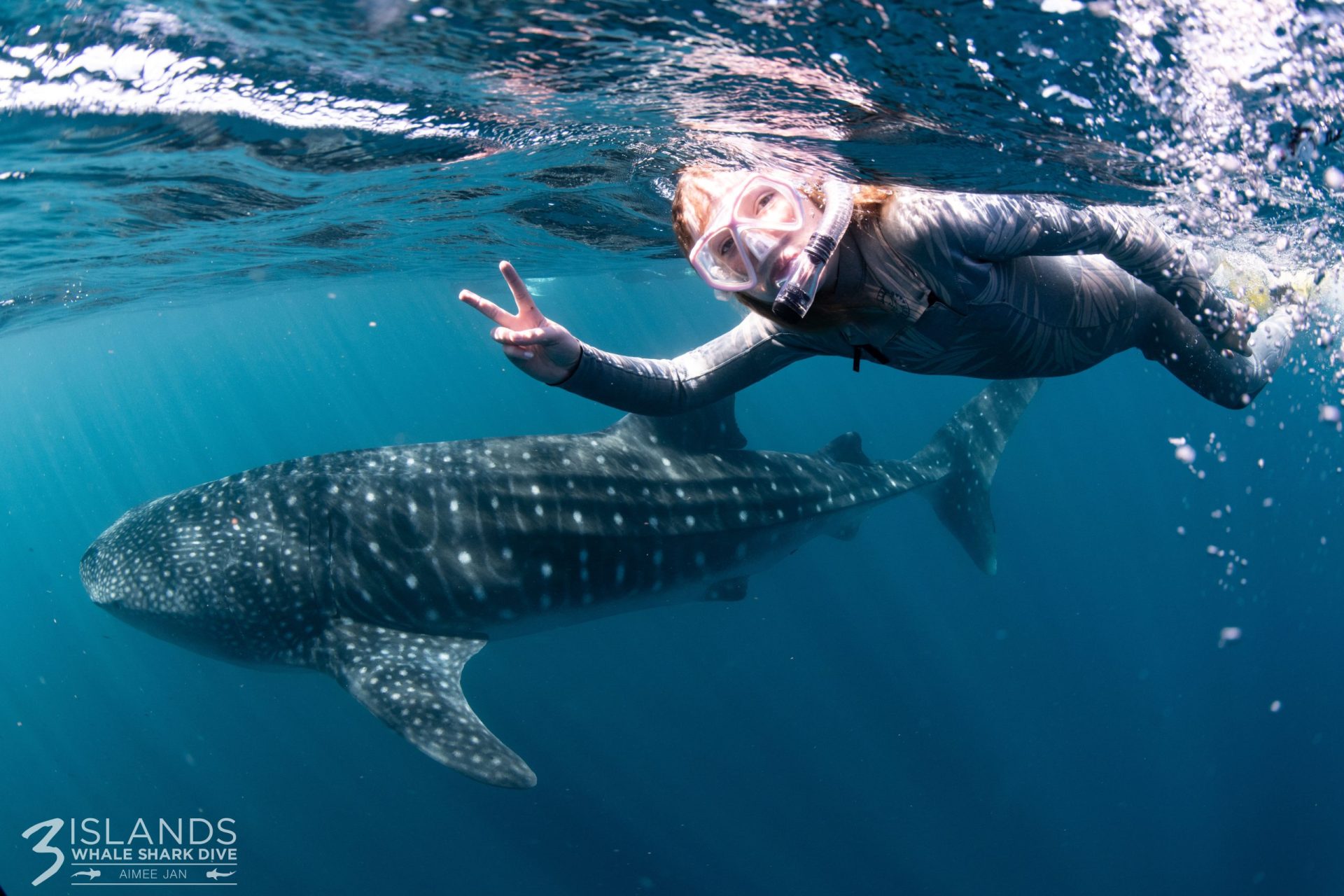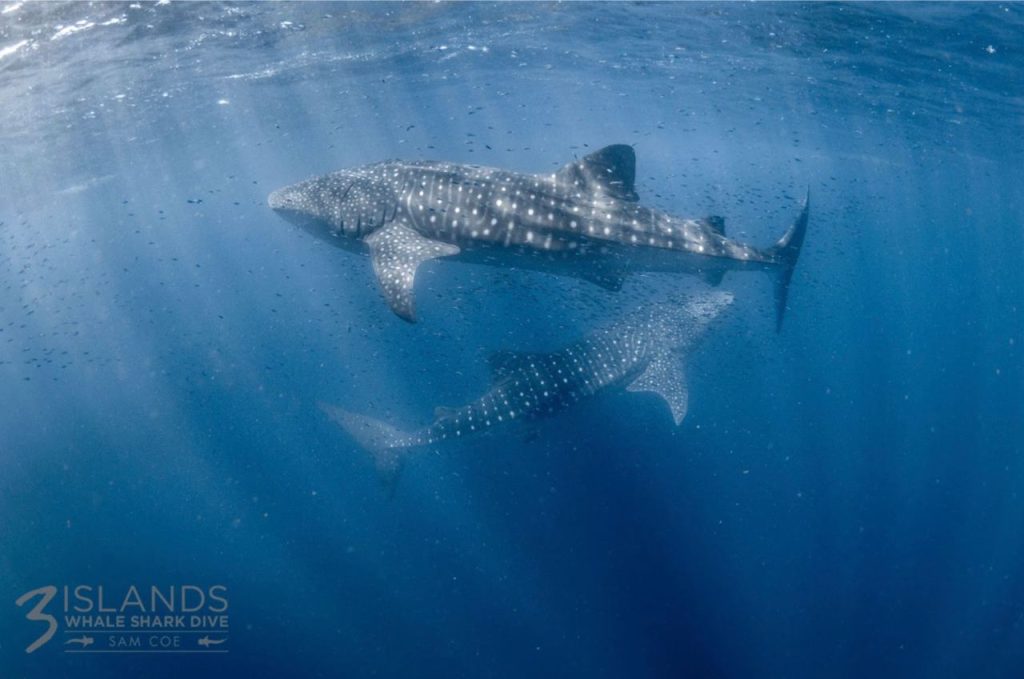The whale shark (Rhincodon typus) stands as a majestic giant in the marine world. They possess a unique blend of characteristics that blur the traditional lines between the mammoth, filter-feeding whales and their more ferocious shark cousins.
In this exploration, we'll look into the intriguing world of whale sharks, unravelling the mysteries of their nature, diet, and remarkable size. Swim with us as we dive deeper into the fascinating realm of the whale shark and discover whether these creatures are more related to the whale or the shark.

Table of Contents
Is a Whale Shark a Whale or a Shark?
Whale sharks are indeed sharks and not whales. They belong to the shark family under the classification Rhincodontidae. As the largest fish in the ocean, whale sharks are unique among sharks because of several distinct characteristics.
Unlike whales, which are mammals, whale sharks are cold-blooded fish with cartilaginous skeletons and breathe through their gills that extract oxygen from water.
Their distinct feeding habits as filter feeders, cartilaginous structure, and preference for warm waters clearly distinguish them from whales, solidifying their place as gentle giants within the shark family.
Does That Mean a Whale Shark Can Eat Me?
No, a whale shark can't eat you.
A common misconception about whale sharks is their potential danger to humans, given their enormous size and classification as sharks. However, these creatures are often referred to as 'gentle giants' for good reasons.
Unlike many other shark species known for their predatory behaviour, whale sharks are filter feeders. Their mouths aren't designed to bite or chew large objects, making them unable to swallow humans.
Their diet and feeding style make them harmless to humans. There are numerous instances where whale sharks have shown a curious and even gentle demeanour towards divers and swimmers, without any sign of aggression. Their passive nature has been observed and documented by marine biologists and ocean enthusiasts alike, emphasising their status as non-threatening giants of the sea.
What Do Whale Sharks Eat?

Whale sharks have a diet that is strikingly different from that of typical predatory sharks. Whale sharks are filter feeders, meaning that they consume plankton and small fish by filtering them through their gills. They feed by swimming with their mouths open, filtering these small organisms through their gills as water passes through.
Whale sharks rely on their vast mouth size, which can be up to 1.5 metres wide, to engulf and filter huge volumes of water teeming with plankton. An interesting aspect of their feeding behaviour is their ability to actively suck water into their mouths, a method not seen in most other filter feeders. This allows them to feed effectively, even when stationary.
Do Whale Sharks Have Teeth?
Yes, whale sharks do have teeth, but they're quite different from those of typical sharks. Despite having over 3,000 tiny teeth—each only a few millimetres in size—these teeth play no role in feeding. Whale sharks rely on their gill rakers to trap plankton and small fish, not their teeth. The whale shark's small, vestigial teeth are a unique adaptation to their specialised diet, further distinguishing them from their more predatory shark relatives.
How Big is a Whale Shark?
Whale sharks hold the record as the world's largest fish in the ocean, showcasing an impressive size. On average, an adult whale shark measures between 5.5 to 9.9 metres in length, with some individuals growing up to 12 metres.
Their weight is equally staggering, typically weighing around 20,600 kilograms, equivalent to the weight of about three adult African elephants.
To provide a clearer perspective, an average whale shark is roughly the length of a school bus. The largest whale shark ever recorded reached an extraordinary length of 18.8 metres, although instances of such sizes are quite rare.
Despite their massive scale, these creatures glide through the water with ease. Their immense size, along with their unique spotted patterns, makes them a truly magnificent sight in the underwater world.
Where Can I Swim with a Whale Shark?
Swimming with whale sharks offers a once-in-a-lifetime experience, immersing you in the peaceful presence of these gentle giants.
At Three Islands Whale Shark Dive, we offer whale shark tours in the crystal-clear waters of Ningaloo Reef, right here in Exmouth, Western Australia. We're committed to ensuring a safe and environmentally respectful adventure for all our guests. When you join us, you're not just embarking on an unforgettable journey; you're also supporting sustainable tourism practices.
So, if you're ready to dive into the world of these gentle giants, come and explore with us at Three Islands Whale Shark Dive. Let's make unforgettable memories together in the beautiful Ningaloo Reef!
More...
Whale Shark Breeding Facts
Whale sharks present a fascinating mystery that intrigues marine biologists and ocean lovers alike. These giant fish, known for their peaceful nature and filter-feeding habits, navigate the warm seas with a grace that belies their immense size Table of Content What is Known About Whale Shark Reproduction? How Many Pups Do Whale Sharks Have? How…
5 Whale Shark Facts You Probably Don’t Know
Have you ever thought about what whale sharks, the biggest fish in the ocean, are really like? Despite their huge size, there’s a lot we don’t know about them. These gentle giants are important to the ocean, but they keep many secrets that even experts are still trying to figure out. In this blog, we’re…





